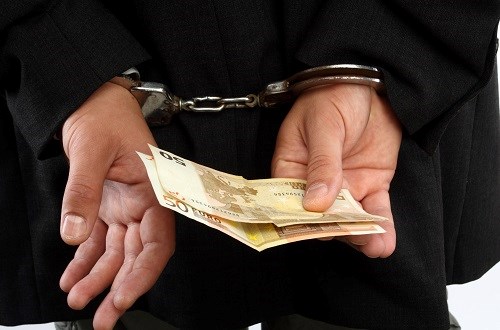The sports market: A crime scene with impunity?
In spite of international justice being increasingly aware of sports as an arena for criminal actions, top sport seems to be a place where money and reputation can be whitewashed without punishment, thanks to its autonomy, its global structure and its spell over fans, media and politics.
At Play the Game 2017, delegates will hear about the experiences of the federal prosecutors in charge of two cases currently leading to criminal charges and arrests of sports leaders all over the world.
Fabiana Schneider, federal prosecutor from Brazil will speak about her efforts in exposing financial mismanagement in relation to the Rio Games leading to the arrest of the top of Brazilian sports, Carlos Nuzman.
From another part of the world, Jean-Yves Lourgouilloux, Deputy Financial Prosecutor at the National Finances Prosecution Office in France, will share insights on his work that led to the fall of the then leadership of International Athletics.
As head of the IAAF Integrity Unit, set up in the wake of the French investigation, David Howman will speak about what steps federations can take confronted with organised crime, while President of ASOIF, Francesco Ricci Bitti, will discuss to what extend federations are able to regulate themselves.
White-collar crime in jerseys
As the most profitable sport in the world, football is often in play in talks of sport and crime. UEFA ex-co member and head of Dutch football Michael van Praag will discuss how measures like Financial Fair Play can help regulate a market that deals with exorbitant sums.
In a recent book, “Football Secret Trade”, journalists Alex Duff and Tariq Panja followed the money trail of football transfers, and at Play the Game 2017, Duff will share some of the surprising terminuses.
At the heart of the matter are the players themselves and on their behalf, player union FIFPro’s Legal Director, Wil van Megen, will speak on how they navigate in a market dominated by big money and sporting ambitions.
Journalism and big data
Giant leaks of documents have exposed tax evasion and money laundering by sport’s actors both on and off the field. The cases exposed through the ‘Football Leaks’ were a result of a cross-national investigative cooperation between journalists. Rafael Buschmann and Michael Wulzinger, who were initially contacted by the source of the leak, will let delegates in on ways to make heads and tales in such large amounts of data.
The compilation and analysis of big data is a well-known way of detecting suspicious patterns and Professor of sports law Marjan Olfers will join the Football Leaks journalists in a session discussing how to compile, decipher and report on data revealing crime in sports.
Sports betting and match-fixing are other areas in which crime seems to thrive in sports. Why are players willing to sacrifice ethics for money when agreeing to fix a match and what sorts of monitoring will be able to see through corrupt betting systems? These are some of the questions that will be discussed in a session looking at various ways to take on the problem.
Play the Game 2017 will also look into stories about the many ways sport is being use as a money machine, about a huge industry that fails to pay its workers proper wages, about black-market ticket sales and about what impact Brexit has had on the Premier League.
In short; Play the Game 2017 will shed light on the darkest sides of sport, highlighting the most prominent cases, analysing the political efforts to combat crime and discuss if professional sport will ever be able to live up to the noble ideas of fair play, respect and community building.

Discover the programme and the continuously updated speakers list.
Sign up now and secure yourself four days densely packed with debates, discussions and networking between experts and professionals from sport, media and academia.
Read more and register






